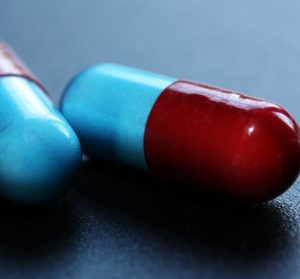Alzheimer’s Drug Could Help Curb Binge Eating
 An Alzheimer’s drug that helps regulate compulsivity could reduce the urge to binge eat, according to a new study published in Neuropsychopharmacology.
An Alzheimer’s drug that helps regulate compulsivity could reduce the urge to binge eat, according to a new study published in Neuropsychopharmacology.
Mematine, a neuroprotective drug, helps to suppress the triggers associated with impulsive behavior, like binge eating.
“We found that memantine, which blocks glutamate NMDA receptors, blocks binge eating of junk food, blocks the strength of cues associated with junk food and blocks the compulsivity associated with binge eating,” said senior author Pietro Cottone, PhD, associate professor of pharmacology and psychiatry at Boston University Medical Center and co-director of the Laboratory of Addictive Disorders.
The brain’s addiction center
The researchers also identified that a specific area of the brain associated with addictive behaviors – the nucleus accumbens – triggers the effects of mematine.
Applying the drug directly into that area seemed to help curb binge-eating behavior.
“Individuals with binge eating disorder have a very poor quality of life and decreased lifespan,” said Dr. Valentina Sabino, study co-author and assistant professor of pharmacology and psychiatry at BUSM. “Our study gives a better understanding of the underpinning neurobiological mechanisms of the disorder.”
Source: News-Medical Net
 Eating Disorder Self Test. Take the EAT-26 self test to see if you might have eating disorder symptoms that might require professional evaluation. All answers are confidential.
Eating Disorder Self Test. Take the EAT-26 self test to see if you might have eating disorder symptoms that might require professional evaluation. All answers are confidential.